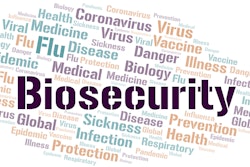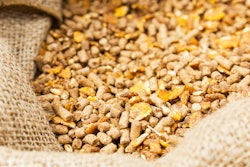Alltech, a leader in agricultural biotechnology, has unveiled its 2024 European Harvest Analysis. The report highlights challenges arising from early-season rains and late-season droughts, leading to moderate to high mycotoxin risks in grains and forages across central and southeastern Europe.
“This year’s European grains face risks comparable to or greater than last year,” said Dr. Radka Borutova, Alltech’s global technical support for the Technology Group. “Key culprits include Type B trichothecenes in corn silage and straw, and Penicillium mycotoxins in grass silages, which could impact both animal health and performance.”
Key Findings:
Barley
- Average Mycotoxins per Sample: 6.8
- Multiple Contamination: 98% of samples
- Primary Risks: Type B trichothecenes, Type A trichothecenes, and ergot alkaloids
Wheat
- Average Mycotoxins per Sample: 7.6
- Multiple Contamination: 99% of samples
- Primary Risks: Type B and Type A trichothecenes
Forages
- Average Mycotoxins per Sample: 3.7
- Multiple Contamination: 78% of samples
- Primary Risks: Type B trichothecenes and Penicillium mycotoxins (e.g., penicillic acid, mycophenolic acid, patulin)
Mycotoxin Prevalence and Management
More than 95% of today’s crops contain at least one mycotoxin, with many harboring multiple toxins. These contaminants, often undetectable until animal health is compromised, underscore the need for proactive mycotoxin management.
The Alltech 2024 European Harvest Analysis Program provides detailed mycotoxin risk assessments, analyzing samples from farms and feed production sites across 20 countries. The samples undergo testing at Alltech’s 37+ lab, capable of detecting 54 mycotoxins, and through SGS, a global leader in certification and testing.
Management Insights from Alltech’s November 21 Broadcast
During the "From Field to Feed: 2024 Crop and Mycotoxin Analysis" live event, experts shared strategies for mitigating risks:
- Regular Testing: Monitor crops and feeds to identify contamination early
- Weather Data Utilization: Use climate patterns to anticipate potential risks
- Comprehensive Data Gathering: Tailor unbiased operational data to specific needs
- Integrate Technologies: Combine traditional methods with new innovations
- Proactive Management: Address contamination swiftly to ensure feed quality and animal safety
Access Full Report and Resources
- View the Full Report: Available now at Alltech Harvest Analysis.
- Broadcast Recording: Register to access the live event replay.
- Mycotoxin Solutions: Learn more at KnowMycotoxins.com.
By addressing these risks with data-driven strategies, Alltech aims to equip producers with the tools to safeguard both animals and operations. “Proactivity is key to resilience and success,” concluded Dr. Borutova.












